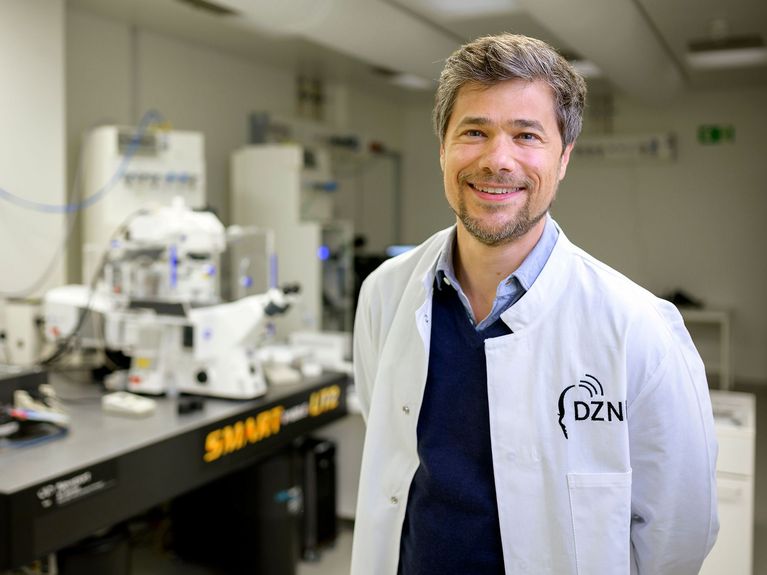One of 46,000
Three questions for Hans-Ulrich Fried

Photo:DZNE/Frommann
Hans-Ulrich Fried ist promovierter Neurowissenschaftler und seit 2010 Leiter der Light Microscope Facility am Deutschen Zentrum für Neurodegenerative Erkrankungen (DZNE) in Bonn. Zusammen mit seinem Team betreut er dort 35 teilweise selbst entwickelte State-of-the-Art-Lichtmikroskope.
What’s the most exciting thing about your job?
For me, light microscopy is a fascinating field that has made rapid advances over the last few decades and is still on the move. It’s very exciting to see how new ideas and principles in light microscopy emerge and how their implementation leads to innovative microscopes and microscopy techniques that ultimately make groundbreaking research results possible. It’s a great privilege to be able to supervise and develop a variety of different microscopes for research and to optimize their use. The opportunity to refine and further develop microscopes as part of a team is particularly exciting. Overall, my job is so varied: from basic research and translational research, to advanced technologies and basic physics.
If money and time were no object, what would your next project be?
Then I would like to try out whether a modern light microscope facility can also be used profitably as a “vehicle fleet” for research; after all, light microscope setups can be very expensive. If a research project requires a comparatively rare microscopy technique, researchers usually travel to a laboratory where this technology is well established. Sometimes, however, it’s not so easy to transfer the research object – or the workflow – to another institute that offers the desired light microscopy method. Or there aren’t sufficient financial resources to establish the technology at their own institute. An interesting solution could be to install highly advanced microscopes in a truck or container and then transport the truck to the research object. This is occasionally done by microscope companies, but usually for product demonstrations to help make sales, not for research projects. With such a research fleet, fantastic new discoveries could certainly be made!
If you could choose anyone, who would you like to have dinner with and what would you talk about?
There are many interesting people to talk to, but if the sky were the limit, I would love to dine with people from a time before the development of writing. With that kind of company, almost any topic of conversation would be incredibly exciting.
Readers comments